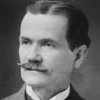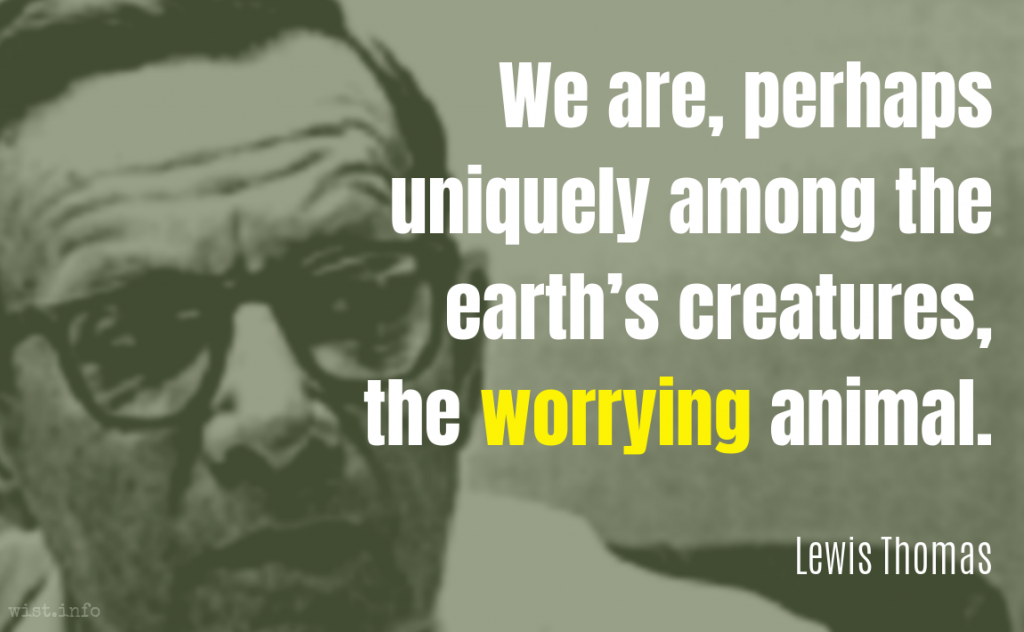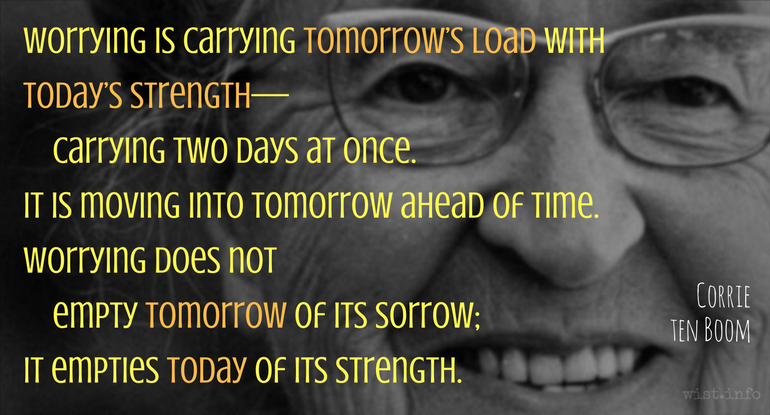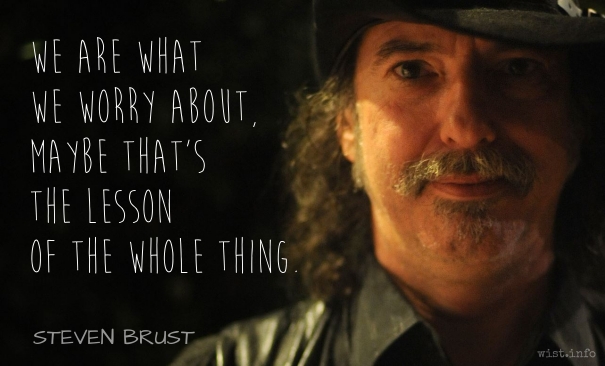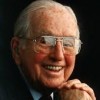But if you have a fear of unpopularity, is that arising from the imputation of vigour and boldness, or that arising from that of inactivity and indecision most to be feared? When Italy is laid waste by war, when cities are attacked and houses in flames, do you not think that you will be then consumed by a perfect conflagration of hatred?
[Sed si quis est invidiae metus, non1 est vehementius severitatis ac fortitudinis invidia quam inertiae ac nequitiae pertimescenda. An, cum bello vastabitur Italia, vexabuntur urbes, tecta ardebunt, tum te non existimas invidiae incendio conflagraturum]
Marcus Tullius Cicero (106-43 BC) Roman orator, statesman, philosopher
Orationes in Catilinam [Catilinarian Orations], No. 1, § 11, cl. 29 (1.11.29) (63-11-08 BC) [tr. Yonge (1856)]
(Source)
Speaking (aloud, rhetorically) to himself about his concerns of public reaction to his acting so passionately against Cataline's conspiracy.
(Source (Latin)). Alternate translations:
But if there be any fear of Envy, is the Censure of Severity and Courage more greatly to be feared, than that of Baseness and Cowardise? Do you not think, when Italy shall be made desolate with War, the Cities plundered, the Houses a-fire, you shall then fall under a flagrant Envy?
[tr. Wase (1671)]
If fear is to operate, which do you think is most to be dreaded, reproach for cowardice, or censure for magnanimity? When Italy is laid waste; when her cities are taken by storm; when her temples and mansions are wrapt in flames; it is then your danger will begin; it is then that the clamours of mankind will be loud against you.
[tr. Sydney (1795)]
But if there is any fear of odium, whether should the odium resulting from severity and determinati0on be dreaded more violently than that of indolence and wickedness? Whether, when Italy shall be ravaged by war, when the cities shall be harassed, when roofs shall be burning, dost thou not think that thou then will burn with a conflagration of odium?
[tr. Mongan (1879)]
But if there is any fear of envy (displeasure), whether is the envy of severity and of fortitude to be feared more violently, than (that) of inactivity and of negligence? Whether, when Italy shall be devastated with war, cities shall be burned, roofs (houses) shall be on fire: dost thou think thyself not (to be) about to burn then with a conflagration of envy (unpopularity)?
[tr. Underwood (1885)]
But if there is any fear of ill will, is the ill will because of strictness and courage to be feared more strongly, than (that) because of inactivity and negligence? When Italy shall be devastated with war, cities shall be harassed, roofs [houses] shall burn: do you think (you) yourself will not (about to) be consumed then with a conflagration of ill will?
[tr. Dewey (1916)]
If the question of inviting disapproval arises at all, the unpopularity resulting from firmness and determination is no more to be dreaded than the opprobrium produced by culpable failure to act. For when Italy is to be ravaged by war, when cities are assaulted and houses gutted by fire, do you not see how utterly the flames of hatred will consume you then?
[tr. Grant (1960)]
But if there is any fear of hatred, it is not hatred of harshness and firmness requiring to be feared more violently than (hatred) of idleness and worthlessness. Or when Italy is laid waste to, the cities will be harassed, the buildings will burn, then do you not think that you will be consumed by burning hatred?
[IB Notes]
Quotations about:
concern
Note not all quotations have been tagged, so Search may find additional quotes on this topic.
I always fear less a dull man who is naturally strong
Than someone who is weak and clever.
[ἀεὶ γὰρ ἄνδρα σκαιὸν ἰσχυρὸν φύσει
ἧσσον δέδοικα τἀσθενοῦς τε καὶ σοφοῦ.]Euripides (485?-406? BC) Greek tragic dramatist
Bellerophon [Βελλεροφῶν], frag. 290 (TGF) (c. 430 BC) [tr. @sentantiq (2015)]
(Source)
Barnes frag. 51, Musgrave frag. 11. (Source (Greek)). Alternate translations:
By far less dangerous I esteem the fool
Endued with strength of body, than the man
Who's feeble and yet wise.
[tr. Wodhull (1809)]
I always fear a stupid if bodily powerful man less than one who is both weak and clever.
[tr. Collard, Hargreaves, Cropp (1995)]
Always I fear an unintelligent but naturally strong man less than a weak and clever one.
[tr. Stevens (2012)]
I fear less the powerful but stupid
than the weak and cunning.
[Source]
Possess your soul without fussing; your guardian angel does not lose half the sleep over you you think he does.
Austin O'Malley (1858-1932) American ophthalmologist, professor of literature, aphorist
Keystones of Thought (1914)
(Source)
And is it not the chief good of money, the being free from the need of thinking of it?
But the greatest undertakings should not be overly pondered, lest contemplation of difficulties too clearly foreseen appall you.
[Los grandes empeños aun no se han de pensar, basta ofrecerse, porque la dificultad, advertida, no ocasione el reparo.]
Baltasar Gracián y Morales (1601-1658) Spanish Jesuit priest, writer, philosopher
The Art of Worldly Wisdom [Oráculo Manual y Arte de Prudencia], § 204 (1647) [tr. Fischer (1937)]
(Source)
(Source (Spanish)). Alternate translations:
As to great enterprizes, we must not stand reasoning, it is enough that we embrace them when they present, lest the consideration of their difficulty make us abandon the attempt.
[Flesher ed. (1685)]
Great undertakings are not to be brooded over, lest their difficulty when seen causes despair.
[tr. Jacobs (1892)]
In moments of great danger, don't even think, simply act. Don't dwell on the difficulties.
[tr. Maurer (1992)]
If a man takes no thought about what is distant, he will find sorrow near at hand.
[人無遠慮、必有近憂。]
Confucius (c. 551- c. 479 BC) Chinese philosopher, sage, politician [孔夫子 (Kǒng Fūzǐ, K'ung Fu-tzu, K'ung Fu Tse), 孔子 (Kǒngzǐ, Chungni), 孔丘 (Kǒng Qiū, K'ung Ch'iu)]
The Analects [論語, 论语, Lúnyǔ], Book 15, verse 12 (15.12) (6th C. BC – 3rd C. AD) [tr. Legge (1861), 15.11]
(Source)
In modern arrangements, this is 15.12; older ones use Legge's verse numberings (15.11). (Source (Chinese)). Alternate translations:
They who care not for the morrow will the sooner have their sorrow.
[tr. Jennings (1895), 15.11]
If a man takes no thought for the morrow, he will be sorry before today is out.
[tr. Ku Hung-Ming (1898), 15.11]
Who heeds not the future will find sorrow at hand.
[tr. Soothill (1910), 15.11]
Men who don't think of the far, will have trouble near.
[tr. Pound (1933), 15.11]
He who will not worry about what is far off will soon find something worse than worry close at hand.
[tr. Waley (1938), 15.11]
If a man does not give thought to problems which are still distant, he will be worried by them when they get nearer
[tr. Ware (1950), 15.12]
He who gives no thought to difficulties in the future is sure to be best by worries much closer at hand.
[tr. Lau (1979), 15.12]
If a man avoids thinking about distant matters he will certainly have worries close at hand.
[tr. Dawson (1993), 15.12]
A man with no concern for the future is bound to worry about the present.
[tr. Leys (1997), 15.12]
If a man does not have long-range considerations, he will surely incur imminent afflictions.
[tr. Huang (1997), 15.12]
If one has no any consideration for the future, might have some anxiety in near.
[tr. Cai/Yu (1998), 15.12]
The person who does not consider what is still far off will not escape being alarmed at what is near at hand.
[tr. Ames/Rosemont (1998), 15.12]
If a man has no worries about what is far off, he will assuredly have troubles that are near at hand.
[tr. Brooks/Brooks (1998), 15.12]
If things far away don't concern you, you'll soon mourn things close at hand.
[tr. Hinton (1998), 15.12]
The person who fails to take far-reaching precautions is sure to encounter near-at-hand woes.
[tr. Watson (2007) 15.12]
The person who does not think ahead about the distant future is sure to be troubled by worries close at hand.
[tr. Annping Chin (2014)]
If a person does not plan and prepare for the future, he must be beset by worries and troubles very soon.
[tr. Li (2020), 15.12]
Few bothersome things are important enough to bother with. It is folly to take to heart what you should turn your back on. Many things that were something are nothing if left alone, and others that were nothing turn into much because we pay attention to them.
[Pocas cosas de enfado se han de tomar de propósito, que sería empeñarse sin él. Es trocar los puntos tomar a pechos lo que se ha de echar a las espaldas. Muchas cosas que eran algo, dejándolas, fueron nada; y otras que eran nada, por haber hecho caso de ellas, fueron mucho.]Baltasar Gracián y Morales (1601-1658) Spanish Jesuit priest, writer, philosopher
The Art of Worldly Wisdom [Oráculo Manual y Arte de Prudencia], § 121 (1647) [tr. Maurer (1992)]
(Source)
(Source (Spanish)). Alternate translations:
Few of those things that occasion trouble, are to be minded: else we shall torment our selves much in vain. It's to act the clean contrary way, to lay that to heart, which we should throw behind our backs. Many things that were of some consequence, have signified nothing at all, because men troubled not themselves about them; and others which signified nothing, have become matters of importance, because of the value that was put upon them.
[Flesher ed. (1685)]
Troublesome things must not be taken too seriously if they can be avoided. It is preposterous to take to heart that which you should throw over your shoulders. Much that would be something has become nothing by being left alone and what was nothing has become of consequence by being made much of.
[tr. Jacobs (1892)]
To convert petty annoyances into matters of importance, is to become seriously involved in nothing. It is to miss the point, to carry on the chest what has been cast from the shoulders. Many things which were something, by being left alone became nothing; and others which were nothing, became much because messed into.
[tr. Fischer (1937)]
So many times I’ve made myself stupid with the fear of being outsmarted.
James Richardson (b. 1950) American poet
“Vectors: 56 Aphorisms and Ten-second Essays,” Michigan Quarterly Review, #17 (Spring 1999)
(Source)
To ruminate upon evils, to make critical notes upon injuries, and be too acute in their apprehensions, is to add unto our own Tortures, to feather the Arrows of our Enemies, to lash our selves with the Scorpions of our Foes, and to resolve to sleep no more.
Thomas Browne (1605-1682) English physician and author
Christian Morals, Part 3, sec. 12 (1716)
(Source)
For he says that evils are neither diminished by time nor lightened by being premeditated; that meditation on evil to come, or, it may be, on that which will never come, is foolish; that every evil is sufficiently annoying when it comes; that to him who has always thought that something adverse may happen to him that very thought is a perpetual evil; that if the expected evil should not happen, he would have incurred voluntary misery in vain; that thus one would be always in distress, either in suffering evil or in thinking of it.
[Nam neque vetustate minui mala nec fieri praemeditata leviora, stultamque etiam esse meditationem futuri mali aut fortasse ne futuri quidem: satis esse odiosum malum omne, cum venisset; qui autem semper cogitavisset accidere posse aliquid adversi, ei fieri illud sempiternum malum; si vero ne futurum quidem sit, frustra suscipi miseriam voluntariam; ita semper angi aut accipiendo aut cogitando malo.]
Marcus Tullius Cicero (106-43 BC) Roman orator, statesman, philosopher
Tusculan Disputations [Tusculanae Disputationes], Book 3, ch. 15 (3.15) / sec. 32 (45 BC) [tr. Peabody (1886)]
(Source)
Discussing the teachings of Epicurus (fr. U444). Source (Latin). Alternate translations:
For that neither are Evils abated by long time, nor yet alleviated by foresight of them; and that the poring on Evils not yet come, and perhaps that never will come, is foolish. For that all Evil is Vexation enough, when it is come; but he that is always thinking that some Adversity may possibly befall him, to him it becometh an everlasting Evil; but if it shall never actually come upon him, a voluntary Disquiet is taken up on false grounds; so the mind is always vex'd, either with enduring, or expecting Evil.
[tr. Wase (1643)]
Evils are not the less by reason of their continuance, nor the oighter for having been foreseen; and it is folly to ruminate on evils to come, or that, perhaps, may never come; every evil is disagreeable enough when it doth come: but he who is constantly considering that some evil may befall him, charges himself with a perpetual evil, for should such eve never light on him, he voluntarily takes to himself unnecessary misery, so that he is under constant uneasiness, whether he meets any evil or only thinks of it.
[tr. Main (1824)]
For evil ls not diminished by time, nor alleviated by premeditation: that it is folly itself to brood upon evil that is future, or indeed, perhaps, is not to be at all: that evil is hateful enough when it comes: that, to the man, who is always musing upon that which is to come, his meditation itself becomes an eternal evil; and, should it prove that his apprehensions have been groundless, he burdens himself with a voluntary misery; and thus, between the encounter and contemplation of evil, he is always in trouble.
[tr. Otis (1839)]
Evils are not the less by reason of their continuance, nor the lighter for having been foreseen; and it is folly to ruminate on evils to come, or such as, perhaps, never may come; every evil is disagreeable enough when it does come; but he who is constantly considering that some evil may befall him, is loading himself with a perpetual evil, and even should such evil never light on him, he voluntarily takes upon himself unnecessary misery, so that he is under constant uneasiness, whether he actually suffers any evil, or only thinks of it.
[tr. Yonge (1853)]
Evils are not diminished by the passage of time, nor made easier by pre-rehearsal. In fact it is foolish to rehearse misfortunes which have not yet happened and which may not happen at all. Each of our misfortunes is distasteful enough, he says, when it is already here: those who have constantly been thinking about what disagreeable things are on the way simply make their evils perpetual. And those things may not happen at all, in which case all their voluntary misery goes for nothing. The result is that they are always in anxiety, either from the evils they undergo or from those they anticipate.
[tr. Graver (2002)]
WATCHMAN:
Sir, I am here. I can’t say I am out of breath.
I have not exactly been “running on light feet.”
I halted many times along the road so I could think,
And I almost turned around and marched right back.
My mind kept talking to me. It said, “You poor guy,
Why are you going there? You’ll just get your ass kicked.”
Then it said, “Are you stopping again, you damn fool?
If Creon hears this from another man, he’ll give you hell.”
Well, I turned this idea up and down like that,
And I hurried along, real slow. Made a short trip long.[Φύλαξ:
ἄναξ, ἐρῶ μὲν οὐχ ὅπως τάχους ὕπο
δύσπνους ἱκάνω κοῦφον ἐξάρας πόδα.
πολλὰς γὰρ ἔσχον φροντίδων ἐπιστάσεις,
ὁδοῖς κυκλῶν ἐμαυτὸν εἰς ἀναστροφήν:
ψυχὴ γὰρ ηὔδα πολλά μοι μυθουμένη:
τάλας, τί χωρεῖς οἷ μολὼν δώσεις δίκην;
τλήμων, μενεῖς αὖ; κεἰ τάδ᾽ εἴσεται Κρέων
ἄλλου παρ᾽ ἀνδρός; πῶς σὺ δῆτ᾽ οὐκ ἀλγύνει;
τοιαῦθ᾽ ἑλίσσων ἤνυτον σχολῇ βραδύς.]Sophocles (496-406 BC) Greek tragic playwright
Antigone, l. 223ff (441 BC) [tr. Woodruff (2001)]
(Source)
Original Greek. Alternate translations:
SENTINEL:
My liege, I cannot say that from very haste I come panting for breath, having stept out with nimble paces. Troth: I have had many half-way houses of cogitation, wheeling about after every fresh start as though I would return. In fact, my soul often addressed me with some such tale as this: Why goest, simpleton, where to be come is to be punished?" then again: "What! wilt not away, poor wretch? and if Kreon shall learn these tidings from some one else, how then wilt thou escape the penalty?" While thus my mind revolved, the speed I made was tardy in its swiftness: and so a short road is made long.
[tr. Donaldson (1848)]
GUARD:
My lord, I will not make pretense to pant
And puff as some light-footed messenger.
In sooth my soul beneath its pack of thought
Made many a halt and turned and turned again;
For conscience plied her spur and curb by turns.
"Why hurry headlong to thy fate, poor fool?"
She whispered. Then again, "If Creon learn
This from another, thou wilt rue it worse."
Thus leisurely I hastened on my road;
Much thought extends a furlong to a league.
[tr. Storr (1859)]
WATCHMAN:
My lord, I am out of breath, but not with speed.
I will not say my foot was fleet. My thoughts
Cried halt unto me ever as I came
And wheeled me to return. My mind discoursed
Most volubly within my breast, and said--
Fond wretch! why go where thou wilt find thy bane?
Unhappy wight! say, wilt thou bide aloof?
Then if the king shall hear this from another,
How shalt thou 'scape for 't? Winding thus about
I hasted, but I could not speed, and so
Made a long journey of a little way.
[tr. Campbell (1873)]
GUARD:
My king, I will not say that I arrive breathless because of speed, or from the action of a swift foot. For often I brought myself to a stop because of my thoughts, and wheeled round in my path to return. My mind was telling me many things: “Fool, why do you go to where your arrival will mean your punishment?” “Idiot, are you dallying again? If Creon learns it from another, must you not suffer for it?” So debating, I made my way unhurriedly, slow, and thus a short road was made long.
[tr. Jebb (1891)]
MESSENGER:
O King, I cannot boast that, hither sent,
I came with speed, for oft my troubled thoughts
Have driven me back; oft to myself I said,
Why dost thou seek destruction?
With doubts like these oppressed, slowly I came,
And the short way seemed like a tedious journey.
[tr. Werner (1892)]
GUARD:
My liege, I will not say that I come breathless from speed, or that I have plied a nimble foot; for often did my thoughts make me pause, and wheel round in my path, to return. My mind was holding large discourse with me; "Fool, why goest thou to thy certain doom?" "Wretch, tarrying again? And if Creon hears this from another, must not thou smart for it?" So debating, I went on my way with lagging steps, and thus a short road was made long.
[tr. Jebb (1917)]
SENTRY:
I'll not say that I'm out of breath from running, King, because every time I stopped to think about what I have to tell you, I felt like going back. And all the time a voice kept saying, "You fool, don't you know you're walking straight into trouble?"; and then another voice: "Yes, but if you let somebody else get the news to Creon first, it will be even worse than that for you!"
[tr. Fitts/Fitzgerald (1939)]
SENTRY:
My lord: if I am out of breath, it is not from haste.
I have not been running. On the contrary, many a time
I stopped to think and loitered on the way,
Saying to myself “Why hurry to your doom,
Poor fool?” and then I said, “Hurry, you fool.
If Creon hears this from another man,
Your head’s as good as off.” So here I am,
As quick as my unwilling haste could bring me;
In no great hurry, in fact.
[tr. Watling (1947), l. 183ff]
GUARD:
Lord, I can't claim that I am out of breath
from rushing here with light and hasty step,
for I had many haltings in my thought
making me double back upon my road.
My mind kept saying many things to me:
"Why go where you will surely pay the price?"
"Fool, are you halting? And if Creon learns
from someone else, how shall you not be hurt?"
Turning this over, on I dilly-dallied.
And so a short trip turns itself to long.
[tr. Wyckoff (1954)]
GUARD:
My lord: I cannot say that I am come
All out of breath with running. More than once
I stopped and thought and turned round in my path
And started to go back. My mind had much
To say to me. One time it said "You fool!
Why do you go to certain punishment?"
Another time "What? Standing still, you wretch?
You'll smart for it, if Creon comes to hear
From someone else." And so I went along
Debating with myself, not swift nor sure.
This way, a short road soon becomes a long one.
[tr. Kitto (1962)]
SENTRY:
My lord,
I can't say I'm winded from running, or set out
with any spring in my legs either -- no sir,
I was lost in thought, and it made me stop, often,
dead in my tracks, wheeling, turning back,
and all the time a voice inside me muttering,
"Idiot, why? You're going straight to your death."
Then muttering, "Stopped again, poor fool?
If somebody gets the news to Creon first,
what's to save your neck?" And so,
mulling it over, on I trudged, dragging my feet,
you can make a short road take forever ...
[tr. Fagles (1982), l. 248ff]
WATCHMAN:
Lord, I cannot say that I arrive breathless
from quickly lifting nimble feet.
In fact, I stopped many times to think,
whirling around on the roads to turn back.
My spirit kept talking to me and saying:
“Poor fool, why are you going to a place where
you will pay the penalty when you arrive? Wretch, are you
dawdling along again? If Creon learns about this
from someone else, how then will you not feel pain?”
As I rolled around such thoughts, I was gradually and
slowly completing the journey, and so a short road
became a long one.
[tr. Tyrell/Bennett (2002)]
GUARD: My King, I can’t really say that I’ve lost my breath by running my feet to the ground so as to get here as quickly as I could! No, I tarried. God knows I’ve stopped myself often enough, on the way here and I’ve almost turned back many times.
My soul, you see, was talking to me all the while and all the while it kept changing its mind: “poor man,” it would say one minute, “Why are you rushing to your suffering?” Or again, “Stupid man,” it would say, “why are you hanging about like this? What if the king hears it from someone else? What a mess you’d get yourself into then!”
Stuff like that was spinning about in my head and it made this small road so much longer!
[tr. Theodoridis (2004)]
GUARD:
My lord, I can’t say I’ve come out of breath
by running here, making my feet move fast.
Many times I stopped to think things over --
and then I’d turn around, retrace my steps.
My mind was saying many things to me,
“You fool, why go to where you know for sure
your punishment awaits?” -- “And now, poor man,
why are you hesitating yet again?
If Creon finds this out from someone else,
how will you escape being hurt?” Such matters
kept my mind preoccupied. And so I went,
slowly and reluctantly, and thus made
a short road turn into a lengthy one.
[tr. Johnston (2005), l. 256ff]
GUARD:
My lord, I will not say that I come breathless
from rushing or quickly moving my feet,
for often my thoughts stopped me in my place,
and I'd wheel around on the road back where I came.
My heart kept talking to me, telling me,
"Poor fool, why are you going where you're sure
to be punished?" "Idiot, you stopping
again? If Creon hears it from someone else,
then you'll really pay for it!" Twisting like this
I made my way, the opposite of hate,
and thus a short road became a long one.
[tr. Thomas (2005), l. 226ff]
The most beautiful people we have known are those who have known defeat, known suffering, known struggle, known loss, and have found their way out of the depths. These persons have an appreciation, a sensitivity, and an understanding of life that fills them with compassion, gentleness, and a deep loving concern. Beautiful people do not just happen.
Elisabeth Kübler-Ross (1926-2004) Swiss-American psychiatrist, author
Death: The Final Stage of Growth (1975)
(Source)
LONDO: Big concerns grow from small concerns. You plant them, water them with tears, fertilize them with unconcern. If you ignore them, they grow.
When did the future switch from being a promise to being a threat?
Chuck Palahniuk (b. 1962) American novelist and freelance journalist
Invisible Monsters (1999)
(Source)
If pleasures are greatest in anticipation, just remember that this is also true of trouble.
Elbert Hubbard (1856-1915) American writer, businessman, philosopher
The Philosophy of Elbert Hubbard (1916)
(Source)
I don’t kno as i want tew bet enny money, and giv odds, on the man, who iz alwus anxious tew pray out loud, every chance he kan git.
[I don’t know as I want to bet any money, and give odds, on the man who is always anxious to pray out loud, every chance he can get.]
Josh Billings (1818-1885) American humorist, aphorist [pseud. of Henry Wheeler Shaw]
Everybody’s Friend, Or; Josh Billing’s Encyclopedia and Proverbial Philosophy of Wit and Humor, “Mollassis Kandy” (1874)
(Source)
We are, perhaps uniquely among the earth’s creatures, the worrying animal. We worry away our lives, fearing the future, discontent with the present, unable to take in the idea of dying, unable to sit still.
Lewis Thomas (1913-1993) American physician, poet, essayist, researcher
“The Youngest and Brightest Thing Around,” The Medusa and the Snail: More Notes of a Biology Watcher (1979)
(Source)
Anxiety is the handmaiden of contemporary ambition.
Worrying is carrying tomorrow’s load with today’s strength — carrying two days at once. It is moving into tomorrow ahead of time. Worrying does not empty tomorrow of its sorrow; it empties today of its strength.
Sickness and sorrows come and go, but a superstitious soul hath no rest.
Cares are often more difficult to throw off than sorrows; the latter die with time, the former grow upon it.
Jean Paul Richter (1763-1825) German writer, art historian, philosopher, littérateur [Johann Paul Friedrich Richter; pseud. Jean Paul]
(Attributed)
(Source)
In Ballou, Treasury of Thought (1884).
Remember that you have only one soul; that you have only one death to die; that you have only one life, which is short and has to be lived by you alone; and there is only one Glory, which is eternal. If you do this, there will be many things about which you care nothing.
A great many people (not you) do now seem to think that the mere state of being worried is in itself meritorious. I don’t think it is. We must, if it so happens, give our lives for others: but even while we’re doing it, I think we’re meant to enjoy Our Lord and, in Him, our friends, our food, our sleep, our jokes, and the birds’ song and the frosty sunrise.
C. S. Lewis (1898-1963) English writer, literary scholar, lay theologian [Clive Staples Lewis]
Letter to Alan Griffiths (20 Dec 1946)
(Source)
The only limit to our realization of tomorrow will be our doubts of today.
Franklin Delano Roosevelt (1882-1945) American lawyer, politician, statesman, US President (1933-1945)
Speech (Undelivered) for Jefferson Day (13 Apr 1945)
(Source)
YOKE: Things past redress are now with me past care.
William Shakespeare (1564-1616) English dramatist and poet
Richard II, Act 2, sc. 3, l. 175 (2.3.175) (1595)
(Source)
Troubles forereckoned are doubly suffered.
Christian Nestell Bovee (1820-1904) American epigrammatist, writer, publisher
(Attributed)
(Source)
Quoted in Orison Swett Marden, The Secret of Achievement (1898).
For the Father of agriculture
Gave us a hard calling: he first decreed it an art
To work the fields, sent worries to sharpen our mortal wits
And would not allow his realm to grow listless from lethargy […]
So thought and experiment might forge man’s various crafts
Little by little, asking the furrow to yield the corn-blade,
Striking the hidden fire that lies in the veins of flint.[Pater ipse colendi
haud facilem esse viam voluit, primusque per artem
movit agros curis acuens mortalia corda
nec torpere gravi passus sua regna veterno […]
ut varias usus meditando extunderet artis
paulatim et sulcis frumenti quaereret herbam.
Ut silicis venis abstrusum excuderet ignem.]Virgil (70-19 BC) Roman poet [b. Publius Vergilius Maro; also Vergil]
Georgics [Georgica], Book 1, l. 121ff (1.121-124, 133-135) (29 BC) [tr. Day-Lewis (1940)]
(Source)
Telling how Jupiter made life on earth miserable for farmers so as to encourage the development of useful arts and crafts.
(Source (Latin)). Alternate translations:
Nor was Jove pleas'd tillage should easie be:
And first commands with art to plough the soyle,
On mortall hearts imposing care, and toyle;
Nor lets dull sloth benumb men where he reigns [...]
That severall arts by labour might be found,
And men in furrows seek the grain that fell,
And hidden fire from veins of flint compell.
[tr. Ogilby (1649)]
The Sire of Gods and Men, with hard Decrees,
Forbids our Plenty to be bought with Ease:
And wills that Mortal Men, inur'd to toil,
Shou'd exercise, with pains, the grudging Soil.
Himself invented first the shining Share,
And whetted Humane Industry by Care:
Himself did Handy-Crafts and Arts ordain;
Nor suffer'd Sloath to rust his active Reign[...]
That studious Need might useful Arts explore;
From furrow'd Fields to reap the foodful Store:
And force the Veins of clashing Flints t' expire
The lurking Seeds of their Cœlestial Fire.
[tr. Dryden (1709), l. 183-190, 203-206]
Nor thou repine: great Jove, with tasks untry'd
To rouse man's pow'rs, an easier way deny'd;
And first bade mortals stir with art the plain,
Lest sloth should dim the splendors of his reign [...]
That gradual use might hew out arts from man,
That corn's green blade in furrows might be fought,
And from struck flints the fiery sparkle caught.
[tr. Nevile (1767), l. 147-150, 160-162]
Not to dull Indolence and transient Toil
Great Jove resign'd the conquest of the soil:
He sent forth Care to rouse the human heart,
And sharpen genius by inventive art:
Nor tamely suffer'd earth beneath his sway
In unproductive sloth to waste away. [...]
Jove will'd that use, by long experience taught,
Should force out various arts by gradual thought,
Strike from the flint's cold womb the latent flame,
And from the answering furrow nurture claim.
[tr. Sotheby (1800)]
The Sire himself willed the ways of tillage not to be easy, and first aroused the fields by art, whetting the skill of mortals with care; nor suffered he his reign to lie inactive in heavy sloth [...] that experience, by dint of thought, might gradually hammer out the various arts, in furrows seek the blade of corn, and form the veins of flint strike out the hidden fire.
[tr. Davidson (1854)]
Our heavenly Father hath not judged it right
To leave the road of agriculture light:
'Twas he who first made husbandry a plan.
And care a whetstone for the wit of man;
Nor suffer'd he his own domains to lie
Asleep in cumbrous old-world lethargy [...]
That practice might the various arts create,
On study's anvil, by laborious dint,
The plant of corn by furrows propagate,
And strike the fire that lurks in veins of flint.
[tr. Blackmore (1871), ll. 140-145, 154-157]
The wise Father of all willed not that the path of husbandry should be easy; he was the first to break up the earth by human skill, sharpening man's wit by the cares of life, nor suffering his own domains to lie asleep in cumbrous lethargy [...] in order that practice might by slow degrees hammer out art after art on the anvil of thought, might find the corn-blade by delving the furrow, and strike from veins of flint the fire that Jove had hid.
[tr. Wilkins (1873)]
The great Sire himself
No easy road to husbandry assigned,
And first was he by human skill to rouse
The slumbering glebe, whetting the minds of men
With care on care, nor suffering realm of his
In drowsy sloth to stagnate [...]
that use by gradual dint of thought on thought
Might forge the various arts, with furrow's help
The corn-blade win, and strike out hidden fire
From the flint's heart.
[tr. Rhoades (1881)]
For so great Jove, the sire of all, decreed,
No works save those that took us should succeed,
Nor wills his gifts should unimproved remain.
While man inactive slumbers on the plain. [...]
Man seeks for fire concealed within the veins
Of flints, and labour groans upon the plains;
Till, one by one, worked out by frequent thought,
Are crude inventions to perfection brought.
[tr. King (1882), ll. 123-126, 135-138ff]
Father Jove himself willed that the modes of tillage should not be easy, and first stirred the earth by artificial means, whetting the minds of men by anxieties; nor suffered he his subjects to become inactive through oppressive lethargy [...] in order that man’s needs, by dint of thought, might gradually hammer out the various arts, might seek the blade of corn by ploughing, and might strike forth the fire thrust away in the veins of the flint.
[tr. Bryce (1897)]
Our Lord himself willed the way of tillage to be hard, and long ago set art to stir the fields, sharpening the wits of man with care, nor suffered his realm to slumber in heavy torpor [...] that so practice and pondering might slowly forge out many an art, might seek the corn-blade in the furrow and strike hidden fire from the veins of flint.
[tr. Mackail (1899)]
The great Sire himself
No easy road to husbandry assigned,
And first was he by human skill to rouse
The slumbering glebe, whetting the minds of men
With care on care, nor suffering realm of his
In drowsy sloth to stagnate [...]
that use by gradual dint of thought on thought
Might forge the various arts, with furrow's help
The corn-blade win, and strike out hidden fire
From the flint's heart.
[tr. Greenough (1900)]
Allfather himself hath willed
That the pathway of tillage be thorny. He first by man's art broke
Earth's crust, and by care for the morrow made keen the wits of her folk,
Nor suffered his kingdom to drowse 'neath lethargy's crushing chain [...]
That Thought on experience' anvil might shape arts manifold,
And might seek in the furrow the blade that is pledge of the harvest's gold,
And smite from the veins of flint the fire-soul hidden there.
[tr. Way (1912)]
Great Jove himself ordained for husbandry
No easy road, when first he bade earth's fields
Produce by art, and gave unto man's mind
Its whetting by hard care; where Jove is king
He suffers not encumbering sloth to bide. [...]
He purposed that experience and thought
By slow degrees should fashion and forge out
Arts manifold, should seek green blades of corn
By ploughing, and from veins of flinty shard
Hammer the fire.
[tr. Williams (1915)]
The great Father himself has willed that the path of husbandry should not run smooth, who first made art awake the fields, sharpening men’s wits by care, nor letting his kingdom slumber in heavy lethargy [...] so that experience, from taking thought, might little by little forge all manner of skills, seeking in ploughed furrows the blade of corn, striking forth the spark hidden in the veins of flint.
[tr. Fairclough (Loeb) (1916)]
The Father willed it so: He made the path
Of agriculture rough, established arts
Of husbandry to sharpen wits,
Forbidding sloth to settle on his soil
[...] So that mankind
By taking thought might learn to forge its arts
From practice: seek to bring the grain from furrows,
Strike out the fire locked up in veins of flint.
[tr. Bovie (1956)]
Jupiter, father of the gods, decided himself
that the way of the farmer should not be an easy way.
He demanded craft; he tuned our nerves with worries;
he weeded lethargy from his human fields [...]
Thus men are supposed to have found the fire that hides
in the veins of flint. By clever meditation
experience elaborates to skill ...
One can see a triumph in it: the first furrow
sprouting a row of corn ....
[tr. Slavitt (1971)]
The father of cultivation himself did not want its way to be easy and wa first to change the fields by design, sharpening mortal wits with cares, not allowing his kingdoms to become sluggish with heavy old age [...] in order that experience and reflection should beat out skills little by little and seek grain stalks in the furrows, that they should strike out fire hidden in the veins of flint.
[tr. Miles (1980)]
The Father himself
Willed that the path of tillage be not smooth,
And first ordained that skill should cultivate
The land, by care sharpening the wits of mortals,
Nor let his kingdom laze in torpid sloth [...]
That step by step practice and taking thought
Should hammer out the crafts, should seek from furrows
The blade of corn, should strike from veins of flint
The hidden fire.
[tr. Wilkinson (1982)]
The great Father himself willed it,
that the ways of farming should not be easy, and first
stirred the fields with skill, rousing men’s minds to care,
not letting his regions drowse in heavy lethargy [...]
so that thoughtful practice might develop various skills,
little by little, and search out shoots of grain in the furrows,
and strike hidden fire from veins of flint.
[tr. Kline (2001)]
The Father himself hardly
willed that agriculture would be easy when he called forth
the field with his art, whetting human minds with worries,
not letting his kingdom slip into full-blown laziness. [...]
so that, using their brains, men might gradually hammer out
many skills, like searching for stalks of wheat by plowing,
and so that they might strike the spark held in veins of flint.
[tr. Lembke (2004)]
For it was Jupiter himself who willed the ways of husbandry be ones not spared of trouble and it was he who first, through human skill, broke open land, at pains to sharpen wits of men and so prevent his own domain being buried in bone idleness [...] so that by careful thought and deed you'd hone them bit by bit, those skills, to coax from furrows blades of corn and spark shy flame from veins of flint.
[tr. Fallon (2006)]
The Father himself willed the way of husbandry to be severe, first stirred by ingenuity the fields, honing mortal skill with tribulation, and suffered not his realm to laze in lumpish sloth [...] so that need with contemplation might forge sundry arts in time, might seek in furrows the blade of wheat and strike from flinty veins the hidden spark.
[tr. Johnson (2009)]
For Father Jupiter himself ordained
That the way should not be easy. It was he
Who first established the art of cultivation,
Sharpening with their cares the skills of men,
forbidding the world he rules to slumber in ease
[...] all this so want should be
The cause of human ingenuity,
And ingenuity the cause of arts,
Finding little by little the way to plant
New crops by means of plowing, and strike the spark
To ignite the hidden fire in veins of flint.
[tr. Ferry (2015)]
HENRY: Canst thou, O partial sleep, give thy repose
To the wet sea-boy in an hour so rude,
And, in the calmest and most stillest night,
With all appliances and means to boot,
Deny it to a king? Then, happy low, lie down.
Uneasy lies the head that wears a crown.William Shakespeare (1564-1616) English dramatist and poet
Henry IV, Part 2, Act 3, sc. 1, l. 26ff (3.1.26-31) (c. 1598)
(Source)
When I look back on all these worries I remember the story of the old man who said on his deathbed that he had had a lot of trouble in his life, most of which had never happened.
Winston Churchill (1874-1965) British statesman and author
The Second World War, Vol. 2: Their Finest Hour, ch. 23 “September Tensions” (1949)
(Source)
A Degree of Fear sharpeneth, the Excess of it stupifieth.
George Savile, Marquis of Halifax (1633-1695) English politician and essayist
“Fear,” Political, Moral and Miscellaneous Reflections (1750)
(Source)
Take heed: Most Men will cheat without Scruple where they can do it without Fear.
Thomas Fuller (1654-1734) English physician, preacher, aphorist, writer
Introductio ad Prudentiam, # 525 (1725)
(Source)
Never give way to melancholy; resist it steadily, for the habit will encroach.
Sydney Smith (1771-1845) English clergyman, essayist, wit
Memoir of the Reverend Sydney Smith, by His Daughter, Lady Holland, Vol. 1, ch. 10 (1855)
(Source)
In chapter 11 is a parallel quotation from Smith: "Never give way to melancholy: nothing encroaches more; I fight against it vigorously."
But Lady Holland observes that in Smith's notebook he also wrote, "I wish I were of a more sanguine temperament; I always anticipate the worst."
The pillow is a silent Sibyl, and to sleep upon an enterprise avails more than to be sleepless under it.
[Es la almohada Sibila muda, y el dormir sobre los puntos vale más que el desvelarse debajo de ellos.]
Baltasar Gracián y Morales (1601-1658) Spanish Jesuit priest, writer, philosopher
The Art of Worldly Wisdom [Oráculo Manual y Arte de Prudencia], § 151 (1647) [tr. Fischer (1937)]
(Source)
(Source (Spanish)). Alternate translations:
The Pillow is a dumb Sibylle. To sleep upon a thing that is to be done, is better than to be awaked by a thing already done.
[Flesher ed. (1685)]
The pillow is a silent Sibyl, and it is better to sleep on things beforehand than lie awake about them afterwards.
[tr. Jacobs (1892)]
The pillow is a tongueless sibyl, and it is better to sleep on something than to lie awake when things are on top of you.
[tr. Maurer (1992)]
And, to conclude, he that leaveth nothing to Chance will do few things ill, but he will do very few things.
George Savile, Marquis of Halifax (1633-1695) English politician and essayist
“Of Caution and Suspicion,” Political, Moral, and Miscellaneous Thoughts and Reflections (1750)
(Source)
Sometimes incorrectly attributed to Edward Wood, Earl of Halifax (1881-1959).



